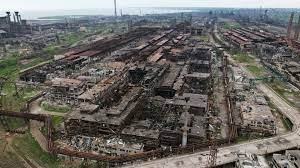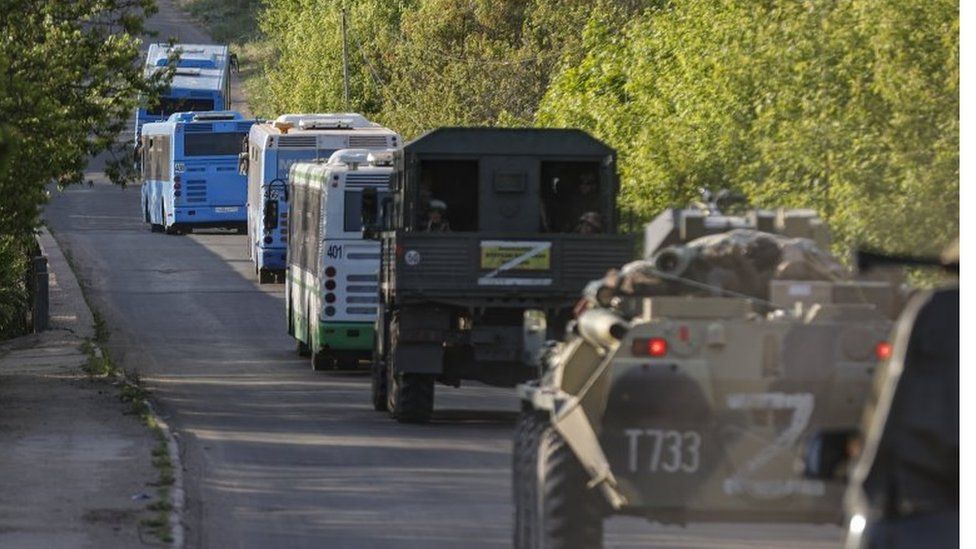
BBC News:-
The bodies of some Ukrainian fighters killed defending the key south-eastern port of Mariupol have arrived in Kyiv, according to the soldiers’ families.
They say this was part of a swap with Russia, with each side receiving 160 bodies. Moscow has not commented.
The fighters spent weeks holed up in the city’s Azovstal steelworks. In May, the survivors were taken prisoner.
More than 1,000 Ukrainian soldiers captured in Mariupol have reportedly been transferred to Russia.
The soldiers, who were being held in locations controlled by Russian-backed forces in eastern Ukraine, were moved to Russia for investigation, a Russian law enforcement source told Itar-Tass, a state-owned Russian news agency.
The same source said more prisoner transfers would follow.
There has been no confirmation from the Ukrainian side, but previously Ukraine’s President Volodymyr Zelensky said he thought more than 2,500 Azovstal defenders – who also include border guards, police and territorial defence – were being held by Russia.
Kyiv says Mariupol’s last defenders were given orders to save their lives after successfully completing their main goal of holding up Russian troops and not allowing them to be redeployed to other key battlefields.
Moscow says the Ukrainian defenders were forced to surrender.

Mariupol was captured by Russia in May after a months-long siege and heavy shelling that virtually wiped out the city. Ukrainian officials estimate that tens of thousands of people, including children, may have been killed.
They have also been warning of a possible outbreak of cholera in the city, where many bodies are still believed to be buried under the rubble, and sewage has reportedly contaminated main water supply chains.
After Mariupol, Russian forces turned their attention to Severodonetsk – and the twin city of Lysychansk. Seizing them would give the Russians control of the Luhansk region – which, alongside Donetsk, makes up the wider Donbas, stated target of Russian operations.


 Users Today : 171
Users Today : 171 Users Yesterday : 65
Users Yesterday : 65 Users Last 7 days : 253
Users Last 7 days : 253 Users Last 30 days : 253
Users Last 30 days : 253 Users This Month : 253
Users This Month : 253 Users This Year : 253
Users This Year : 253 Views Today : 401
Views Today : 401 Total views : 631
Total views : 631 Who's Online : 1
Who's Online : 1